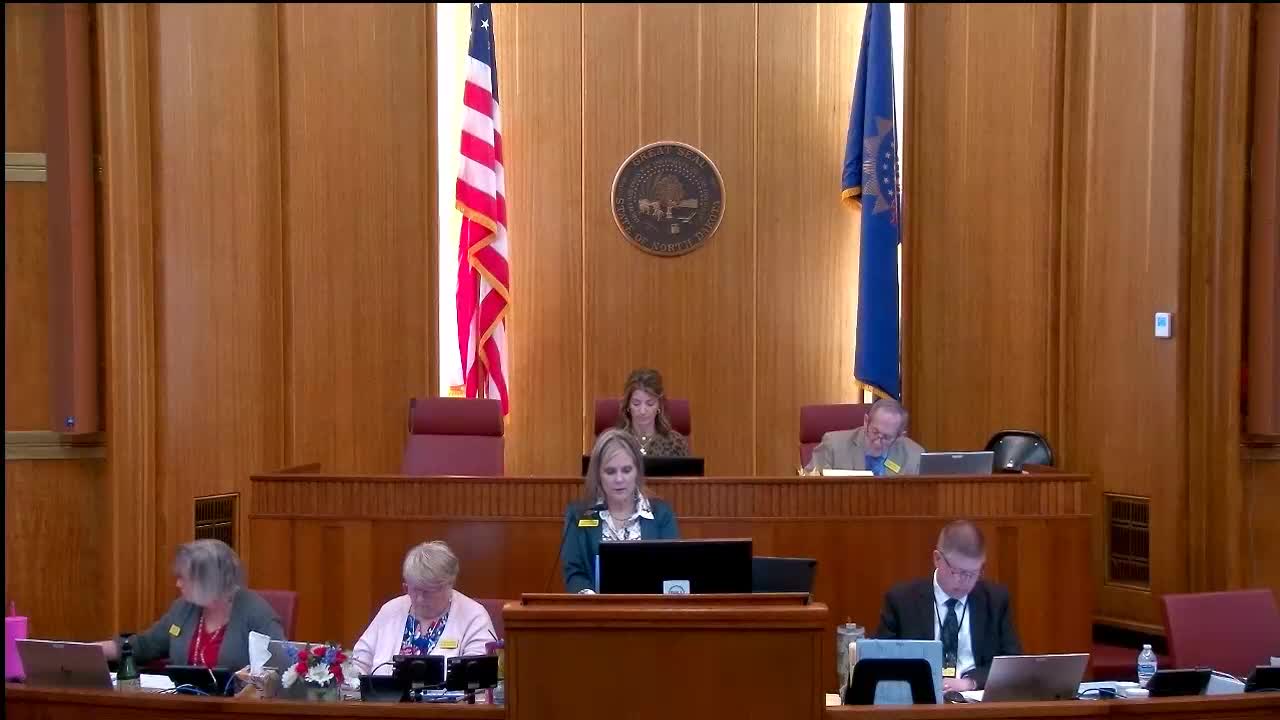Senate approves bill eliminating cost sharing for diagnostic breast exams; measure sent to appropriations
Get AI-powered insights, summaries, and transcripts
Subscribe
Summary
The Senate passed House Bill 12‑83, a measure creating cost‑sharing restrictions for diagnostic and supplemental breast examinations; final tally 26 ayes, 19 nays, 2 absent, and the bill was re‑referred to Appropriations.
The Senate passed House Bill 12‑83, a measure creating a new section in chapter 54‑52.1 of the North Dakota Century Code to restrict cost sharing for diagnostic and supplemental breast examinations. The final roll call showed 26 ayes, 19 nays and 2 senators absent; the bill was deemed reconsidered and re‑referred to the Appropriations Committee for further consideration.
The bill’s fiscal note lists a statewide fiscal impact of about $3,000,000. Opponents on the floor, led by Senator Kathy Kessel, cited the fiscal note and committee analysis and warned the costs would fall on the Public Employees Retirement System (PERS), public employees and retirees. “According to the fiscal note, the projected increases in premiums is $4,070,000 for public employees, and ultimately taxpayers,” Kessel said on the floor, and she added an estimated additional impact for retirees and COBRA enrollees described in committee testimony.
Supporters said removing cost sharing for diagnostic exams could lead to earlier diagnoses and downstream savings in treatment costs. Senator Wallin described a personal family experience and urged colleagues to consider long‑term benefits: “I know that having early detection is needed … early treatment results in better outcomes,” Wallin said. Senator Brownberger also described a recent diagnosis in his family and urged support to help patients afford diagnostic follow‑up testing.
Floor debate touched on several technical and policy points: whether the fiscal note accounted for savings from earlier detection; whether the change would initially apply to PERS and, later, the broader insurance market; and whether the proposal would open requests for similar cost‑sharing eliminations for other diagnostic services. Senator Kessel said the bill “lacks balance” because it could expand beyond the pilot and create compliance complexity for health savings account plans. Other senators spoke to studies and experience in other states that, they said, showed savings from earlier detection but noted that such savings are usually not included in fiscal notes.
Following the vote the Senate clerk recorded that House Bill 12‑83 is “deemed reconsidered” and the measure was re‑referred to the Appropriations Committee for further review of funding and implementation details.
What happened next: the bill will be scheduled for committee consideration of funding and implementation language; no changes to law take effect until further legislative action.
Votes at a glance: final tally on House Bill 12‑83 — 26 ayes, 19 nays, 2 absent; bill passed and was re‑referred to Appropriations.
